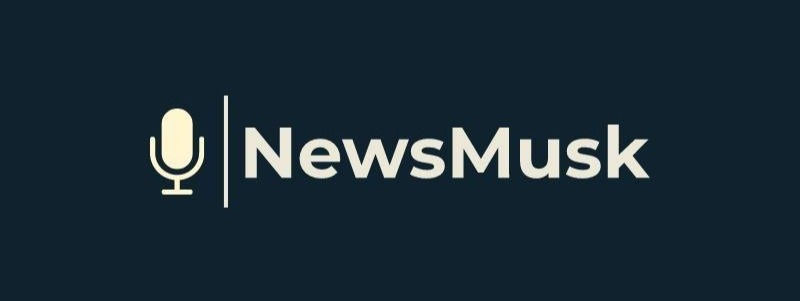The Concept of 'No Time' Boosted the Creativity of Steve Jobs and Albert Einstein, What's that????
- Soujanya Syamal

- Mar 28, 2021
- 3 min read
According to neuroscience, taking a break from our hectic schedules and devoting some time to doing nothing at all is important for cultivating creativity.

As science and history have shown, establishing a proper daily routine is critical to achieving success.
According to an article in Inc magazine, while your everyday routine can be safe and positive, it can also be stressful and destroy creativity.
Many successful individuals, according to the magazine, have devoted a substantial portion of their lives to "no time."
"No time" refers to a quiet moment in which a person can separate himself, herself, or themselves from the noise and demands of the world, according to Steven Kotler, author of "The Art of the Impossible" and TED speaker.
It's no surprise that posts about important and popular people's morning routines abound on the internet, including advice about how to incorporate meaningful habits into your daily routine.
Gratitude practises, nature walks, and interaction with oneself are recommended for a beneficial and fulfilling life because they are backed by evidence that shows that all of these behaviours are beneficial to people. Similarly, science suggests that "no time" is important in such a schedule, because if you spend the majority of your day doing all of these other things, you are unlikely to have time for yourself.
You don't have enough flexibility in your schedule for 'no time.'?
As defined by Kotler, "no time" is "a quiet time, alone, separated from the noise and demands of the world."
"The 'no time' refers to the enormous void between 4 a.m. (when I begin my morning writing session) and 7:30 a.m. (when the rest of the world wakes up). "This 'no time' is a complete darkness that belongs only to me," he writes. “Because the day's pressing issues have yet to arrive, there is time for the ultimate luxury: patience. Who cares if a sentence takes two hours to perfect?"

According to Kotler, research shows that disconnection time blocks have a significant impact on creativity.
“The pressure causes the brain to concentrate on the information, stimulating the left hemisphere and obstructing the overall view. Worse, when we are under strain, we are always depressed. We are irritated by the rush, which has a negative impact on our mood and limits our ability to concentrate. As a result, having a finite amount of time can be kryptonite for creativity,” he says.
In other words, "no time" allows us to relax enough to see the big picture and generate new ideas. Even your well-intentioned morning yoga session, the hustle and bustle of daily life will chase away the timid and ungainly ideas of evolving thoughts.
"No time" is something that both Steve Jobs and Albert Einstein agree on.
Despite the fact that Kotler claims to be an authority on the neuroscience of creativity, many other successful people have realised the same reality. Many of Albert Einstein's most valuable ideas came to him when he was doing nothing and enjoying his own "no time." Steve Jobs was also known for being a "famous bum."
"The time Steve Jobs procrastinated and pondered the possibilities was time well spent for more divergent ideas to emerge," Wharton professor Adam Grant said of Jobs' long stretches of aimless inactivity to Business Insider.
It's worth remembering that both geniuses, Einstein and Jobs, did a brilliant job of bringing their theories into motion.
Not only is "no time" sufficient to change the world, but it is also a necessary component and component of the whole. It's easy to overlook "no time" when putting together the ideal morning routine, but it's something you should still include in your daily routine. You'll note a difference in how you think and develop, and you'll become a more efficient version of yourself as a result.
READ MORE-

Subscribe Our News Letter to get updated with our lates post-
To help their work, Newsmusk allows writers to use primary sources. White papers, government data, initial reporting, and interviews with industry experts are only a few examples. Where relevant, we also cite original research from other respected publishers.

Source- Entrepreneur India
































Need expert help to write your assignment? Assignment Mentor UK offers reliable, affordable, and plagiarism-free academic writing services. Our qualified writers ensure top-quality assignments delivered on time for every student.
Write My Assignment
प्रधानमंत्री आवास योजना मध्य प्रदेश (PM Awas Yojana MP) गरीबों के सपनों को पूरा कर रही है। PM Awas Yojana Madhya Pradesh 2025 के अंतर्गत Pradhan Mantri Awas Yojana Madhya Pradesh ने हर गरीब परिवार तक पक्का घर पहुंचाया है। PM Awas Yojana MP Gramin ग्रामीण इलाकों में राहत और स्थिरता ला रही है जबकि PM Awas Yojana MP Urban शहरी गरीबों को सुरक्षित आवास दे रही है। प्रधानमंत्री आवास योजना MP समाज में समानता और विकास का प्रतीक बन गई है। यह योजना हर नागरिक के जीवन में सकारात्मक बदलाव ला रही है।
ww
Thanks to Bihar Bhulekh, the property record of my family was verified within minutes. Bhulekh Bihar has simplified the Bihar Land Record process. This बिहार भूलेख system provides trustworthy details. Bihar Bhumi has empowered citizens by providing legal proof online. It has created a new level of trust in governance.
Taking a moment to reconnect after being apart can spark creativity and strengthen friendships — just like how Steve Jobs and Albert Einstein thrived when they embraced the idea of having “no time.” If you’re welcoming a friend back into your life, a thoughtful gesture can make all the difference. Explore welcome back cards for friends at Sendwishonline.com to share warmth, positivity, and inspiration as you celebrate their return.